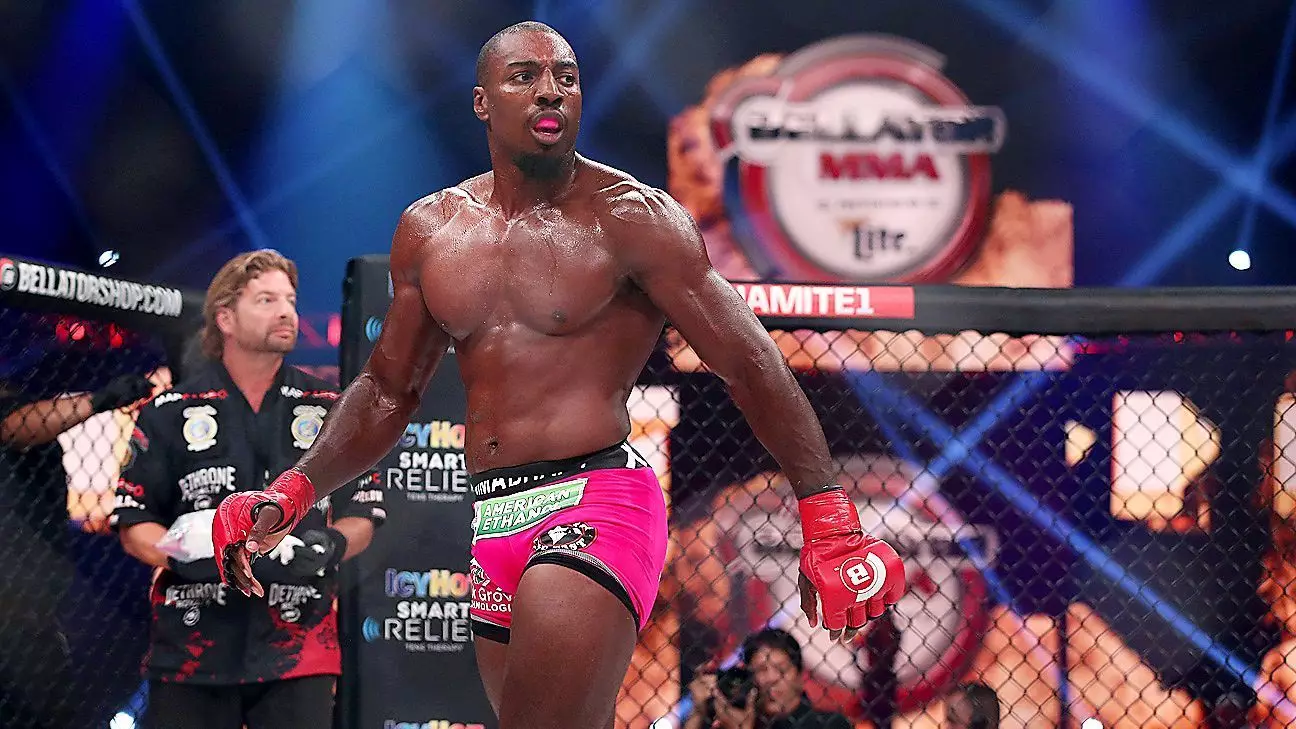In a bold and daring move, veteran mixed martial artist Phil Davis has once again taken up the mantle against the Ultimate Fighting Championship (UFC) by filing an antitrust lawsuit. This latest legal action, lodged in the U.S. District Court of Nevada, underscores a troubling pattern within sports—one where the power of a single entity can choke competition and, consequently, athlete wages. The lawsuit, which is spearheaded by the renowned firm Berger Montague, seeks to expose the UFC’s systematic efforts to inhibit fair competition in the mixed martial arts (MMA) world.
Davis’s plight represents the frustrations of many fighters who feel trapped in a promotional landscape dominated by the UFC’s overwhelming influence. The core of the lawsuit alleges that the UFC employs tactics designed to stifle rival promotions, making it increasingly challenging for them to recruit high-caliber athletes. The implications are profound, as fighters not currently under contract with the UFC find themselves unable to secure equitable pay rates due to a murky marketplace manipulated by the organization’s monopolistic practices.
The Impact on Fighter Earnings
The suit sheds light on a significant concern: that the devastating effects of UFC’s monopolistic strategies extend beyond its direct fighters to those in competing promotions as well. According to Eric Cramer, Davis’s attorney, the lawsuit articulates how the UFC has prudently crafted barriers that thwart the ascension of newer or existing competitors within the realm of MMA. The UFC not only seeks to secure top-notch talent but also to maintain an iron grip on the business dynamics that dictate fighter salaries and career progression.
In a sport where earnings are often tied to contract negotiations and market demands, Davis’s lawsuit highlights how the prevailing power dynamics create an uneven playing field. Under the shadow of this legal battle is the potential for a groundbreaking change in contractual agreements, particularly pertaining to the standard one-year term exhibited in fighter contracts. Historically, these contracts have locked fighters into protracted engagements, stipulating bouts over extended periods without a clear pathway to exit.
Stepping Up to Fighter Advocacy
Davis, who has experienced the intricate layers of MMA promotions firsthand, describes his current legal journey as a necessary stand for all fighters—a quest to dismantle a coercive system rooted in exclusivity. “I am proud to stand up for professional MMA fighters to unlock the UFC’s stranglehold on the entire sport,” Davis states emphatically. His words resonate deeply in a community where many athletes aspire to make a living from their craft yet wrestle with the constraints imposed by industry giants.
The UFC’s latest legal battles are not isolated; they are part of an ongoing struggle that pits individual fighters against a giants’ corporate behemoth. As Davis champions a cause aimed at ensuring fair wages and professional autonomy, it invites a larger dialogue about athlete treatment within sports as a whole.
As this lawsuit unfolds, it’s poised to draw attention not just to the practices of one organization but also to the larger ethical implications surrounding athlete rights, competition fairness, and diversity within professional sports. The outcome could redefine the landscape of MMA and potentially serve as a clarion call for fighters in other sports to seek parity and respect in their respective fields.

